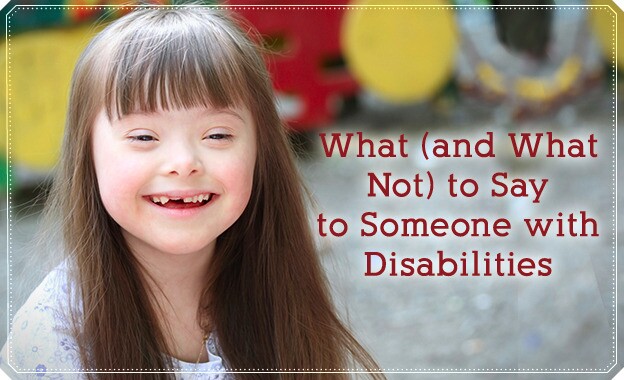
I pushed the cart through the crowded aisles, shaking my head at the squeaking whine coming from the left front wheel. All around me people turned to stare. I pasted on a smile and tried to convince myself they were staring at the anguished grocery cart, but I knew—they were staring at my children.
My two boys were crying, tears streaming down their red faces like the first trickle of a dam about to burst. There was too much stimulation in grocery stores. Too many noises, smells, sights, and people.
I pushed my whining cart and weeping children more quickly so we could get the most necessary items on my list before they had a complete meltdown. I knew it was coming. Soon.
We didn’t make it. I abandoned my cart, my groceries, and my pride in the middle of the checkout line when a woman asked, “What is wrong with your children?” Perhaps she had never seen a six- and four-year-old throw a synchronized tantrum.
I have to admit, it was a good one, complete with head-banging. The other shoppers were lucky I didn’t start screaming as well. I wanted to—that or cry—as I carried both my rather large children out to the car, one under each arm. In fact, I did cry. I sobbed all the way home.
A Kinder Way
I am the mother of two disabled children. This sets me apart from most mothers. It can distance me from the comfortable playground chatter, the proud comparing at the doctor’s office, and the friendly waves in line at the store. Other parents may want to include me, but they don’t know how to bridge the gulf that separates our lives.
Many try, but awkwardness usually results. One of the most common attempts to span the gap is that question: “What is wrong with your child?” Most of the time this is a well-meant, uncertain query intended to bring my world and theirs together. Occasionally it feels like a cold condemnation implying that my parenting is somehow responsible for my children’s behavior.
Several years ago, a woman who worked at my children’s school taught me a kinder way to broach the subject. I recognized the curiosity in her eyes and braced myself for that question.
But what actually happened with this woman surprised me.
“Tell me about your boys,” she said. It took me a moment to respond. Frankly, I was overcome with relief. I had grown so accustomed to defending my children that I hadn’t realized how desperate I was to talk about them.
When to Ask about Disabled Children
There are three groups of people:
1.Strangers.
2.Acquaintances and co-workers
3.Close friends, family, and professionals who work with children
While I’d like to think that the woman in the grocery store meant the best and only wanted to help, as a stranger, she had no vested interest in my family. It was inappropriate for her to inquire about my children in such a manner. Strangers shouldn’t ask. If you see someone with disabled children, treat them exactly the same as you would anyone else. Kindly curb your curiosity, and keep the conversation light and neutral.
When you are acquainted with a child with disabilities or his or her parents, you do have a vested interest in them. It is natural to feel concern for the family. Asking about the disability in a polite, caring, non-threatening manner shows genuine interest in your friend or co-worker.
If you are a close friend, family member, or professional to someone with disabled children, you hold a unique position. You are part of their support system. The more you know about the disability, the better you can help them. Seek out reliable information about the disability from the Internet and books. Show an interest in their lives, but be sensitive to the grief the parents may be experiencing, and let them grieve. Be perceptive, understanding, and patient.
Addressing the Disability
People generally respond in one of two ways when encountering those with disabilities: they stare at or they overlook the individual. The latter is a common and understandable reaction stemming from a desire to not offend. While I understand this, ignoring a person with a disability is as offensive as saying the wrong thing. When dealing with individuals with disabilities, ignore the disability, not the person. Meet their eyes; don’t pretend they don’t exist.
In learning to approach and interact with those who struggle with outward differences, we must recognize that inwardly, we are all the same. When we focus on what we have in common, the disabilities fade to the background, leaving only the person and all their glorious abilities.
Gaining the Appropriate Skills
I have learned that most people do want to include those of differing abilities, but they lack the knowledge of how to approach either the individuals themselves, or, as in my case, the parents. This lack of experience leads to uncomfortable, even painful encounters.
But inclusion is a partnership that works only if both parties are trying. Parents share in the responsibility of assimilating their children into society, which I recognize with my boys. It has taken me years to school my feelings and reactions.
As you strive to perfect your skills, keep in mind that every parent of a child with a disability has bad days. Remember, they are learning, too; it takes a lot of practice to face the world with a cheerful heart when your most prized possession, your child, is hurting.
Do
Say hello, smile
Be friendly
Treat disabled people like everyone else
Act naturally
Make eye contact
Be genuine
Ask appropriate questions
Teach your children how to ask appropriate questions
Include the disabled
Don’t
Point
Stare
Laugh
Ask what is “wrong”
Ignore
Avoid
Whisper
Label people with disabilities as “special”
Say you understand
Joke about the disability
For more great information on this topic, visit these other LDS Living links:
“Autism in Our Primary,” by Wendy Green
